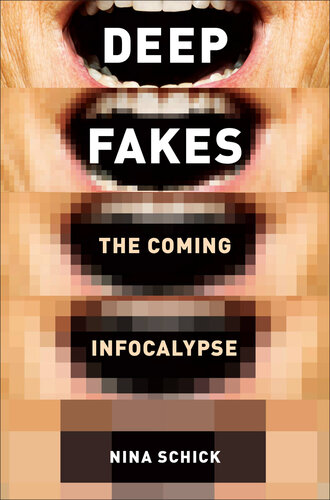
Deepfakes
The Coming Infocalypse
کتاب های مرتبط
- اطلاعات
- نقد و بررسی
- دیدگاه کاربران
نقد و بررسی

August 1, 2020
If you think election interference and internet fakery are bad now, give it a couple of years. Artificial intelligence, writes journalist and activist Schick, is growing in sophistication to the point that it is attaining the ability to generate images depicting things that never happened. In the pornography industry, this is already manifest in "nonconsensual porn" or "faceswapping," in which the faces of celebrities are grafted onto the bodies of porn actors. Another hacker tactic is to graft voice-overs onto images of, say, Barack Obama uttering statements that he never made in order to sway opinion. "When used maliciously as disinformation, or when used as misinformation, a piece of synthetic media is called a 'deepfake, ' " writes the author; when deepfakes pile up, the result is "Infocalypse." In this brief survey, Schick examines current uses of false media, much of which comes from labs in Russia in order to seed Western sources with misinformation--the rape of a German woman by refugees, for instance, an event that never occurred. This sowing of misinformation is rendered especially easy in polarized electorates in which citizens are prepared to believe the worst of their opponents. It was rampant in 2016--and, as Schick writes, "The fact that this matter has become a partisan political issue in the United States, with one side paranoid about Russia and the other denying that Russia is a threat at all, shows that the Kremlin's strategy is working beautifully"--and it's likely to get far worse in 2020, with not just Russia, but also Iran, Saudi Arabia, and China attempting to influence the outcome of the presidential election. The flimflammery is not just political, writes the author, who notes that Interpol has intercepted campaigns to promote some 34,000 "fake coronavirus products." Those concerned with the criminal side of technology will learn from Schick's well-mounted argument.
COPYRIGHT(2020) Kirkus Reviews, ALL RIGHTS RESERVED.

























دیدگاه کاربران